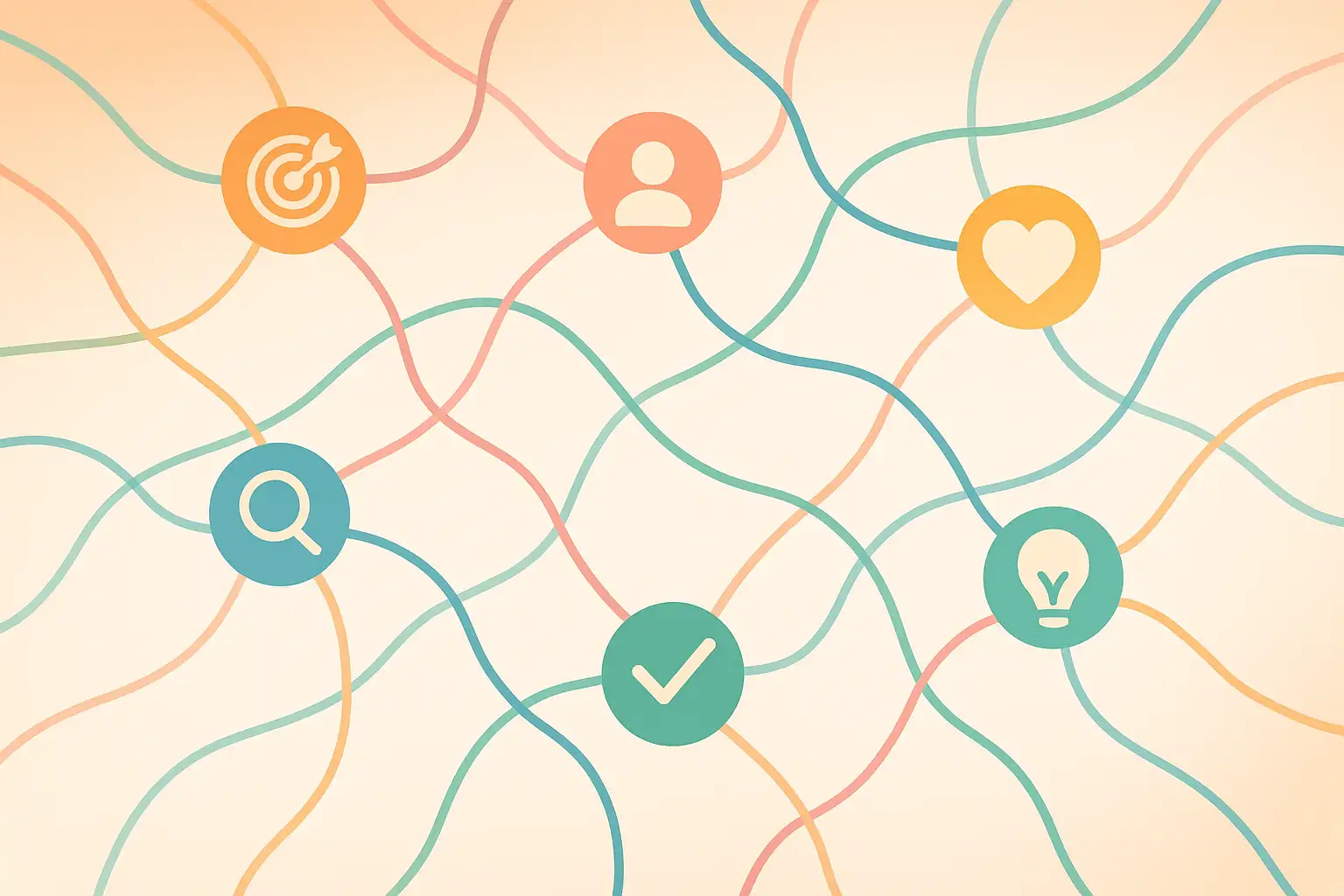Your Brain's "Filter" — Understanding the RAS

Translated by AI
Your World is a Projection of Your Attention
Have you ever noticed that when you start focusing on something, suddenly, you see related information everywhere in your life? Or perhaps when you're considering buying a TV, recommendations on social media, conversations with friends, and even ads you pass on the street seem related to TVs? These occurrences are not coincidences; it's a crucial internal system of your brain at work — the Reticular Activating System (RAS).
The RAS is a potent neural network that regulates functions associated with consciousness, alertness, attention, and information filtering. Acting as a gatekeeper, it selects and filters external information, ensuring that you concentrate on what truly matters to you. In other words, the world we "see" is not objective but a result of what our attention chooses. Understanding the workings of the RAS will enable us to consciously shape our thought patterns and influence our life's trajectory.
What is the RAS?
The RAS (Reticular Activating System) is situated in the brainstem and functions as a key channel connecting the brain with the senses. Our senses are constantly bombarded with a torrent of information, but the brain cannot process all of it. This serves as a survival mechanism, with the RAS acting as a "gatekeeper," a protective net between our senses and perceived content, determining which information should enter the conscious level and which should be ignored.
The core principle of the RAS operation is: "What is important to us is processed first." This elucidates why, when you start focusing on something, it frequently appears in your life. It's not that the world has altered, but rather that your brain has commenced actively seeking information correlated with that matter.
This filtering mechanism fortifies our thought patterns and beliefs. For instance, if you have long held the belief "I'm not good at socializing," your RAS will draw your attention to all experiences corroborating this view, such as past awkward circumstances or unsuccessful interactions, while neglecting moments where you performed well. Conversely, if you subscribe to the belief "Opportunities abound," the RAS assists you in noticing chances throughout life.
The RAS in Everyday Life
The influence of the RAS is ubiquitous, from your shopping preferences and relationships to workplace decisions. Below are some commonplace examples from daily life:
Shopping and Consumer Behavior
After initiating research on a smartphone brand, you observe that everyone in your vicinity discusses it, and it frequently surfaces in online advertisements. This is attributable to both algorithmic prompts and your RAS making you more attuned to this kind of information.Interpersonal Relationships and Communication
Suppose you believe "The world is filled with kindness," you'll be more attentive to others' amicable gestures, like strangers holding doors open or clerks flashing smiles. Conversely, if you maintain the belief that "No one is trustworthy," the RAS will emphasize negative social experiences, reinforcing this perception.Workplace and Personal Development
If you cling to the notion "I never achieve enough," even when your boss commends a particular performance during a meeting, you'll dismiss it as affirmation because you're more preoccupied with prior minor errors. Likewise, when you hone in on learning opportunities, your RAS aids your discovery of diverse resources to enhance yourself, such as new trainings, courses, or mentorship opportunities.Health and Fitness
Upon beginning to track fitness-related information, you may discover a heightened sensitivity to discussions concerning dietary health, exercise regimens, and similar topics. This is indicative of the RAS assisting you in crafting a new lifestyle.
The RAS: The Mind's Algorithm
Operating unconsciously, the RAS autonomously intensifies prevailing beliefs, regardless of their genuine benefit to us. This signifies that if we remain entrenched in a negative mindset, the RAS incessantly confirms an unfriendly world, scarce opportunities, and difficulty in achieving success.
Only by consciously engaging the RAS can we steer our "mental algorithm" and rewrite our worldview.
Outlined below are several straightforward approaches to recalibrating the RAS:
Establish Clear Objectives
The RAS requires a "search command." Should your aim be to augment professional capabilities, the RAS will commence aiding you in filtering relevant prospects, such as new workplace affiliations and learning resources.Utilize Affirmative Language
Inner dialogue influences the RAS's filtering operations. For instance, living by affirming oneself will prompt the RAS to search for evidence supporting that belief.Envision Ideal Scenarios
Frequently envisioning scenarios where goals are realized, be it delivering a triumphant speech, achieving favorable health, or cultivating rewarding relationships, prompts the RAS to assist in locating resources and opportunities related to those images.Employ "Focus Questions" to Shape Thoughts
Inquire of yourself: "What minor details today can evoke happiness within me?" This inquiry directs the RAS to actively seek joyful instances rather than dwelling on stress and worry.
The RAS: Your Life’s Navigational Tool
The RAS functions akin to a formidable navigation tool, dictating where our attention resides, influencing both actions and results. If we permit the RAS to fall under negative belief dominion, our world becomes rife with restrictions; however, by adjusting it consciously, it becomes our foremost asset in realizing life's objectives.










